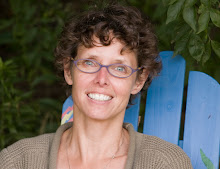Stories that Work
Here's a perfect example of how narrative can help. After a discouraging and difficult day in CPE, feeling a bit weepy and worn out, I talked with my agent Claudette. We've been working together more than a dozen years and our relationship has grown to the level of close friends and almost sisters. We've only met face-to-face once, but that doesn't seem to matter. Our phone conversations through the years have been long and full of the stories of life--we encourage each other, see the best, pick each other up, get mad together, vent our frustrations, and alternately, it seems, deal with our life learnings and crises.
Today she called about a contract issue and caught me in a shaky moment. I told her a bit about CPE, about the newness, about my self-doubt, about my irritation at my insecurities. I related a story about the time I decided I wanted to learn to play classical guitar. I fell in love with the instrument; I had to have it. I paid the music store $50 a week from my paycheck until I could get the guitar out of layaway. By the time I could afford to get it, I was six and a half months pregnant--a condition not condusive to the posture and position needed to play classical guitar. But the biggest obstacle was not my physical condition but rather my inability to be less than excellent. I saw this lovely instrument; I held it; I wanted to play it. But I couldn't bear to struggle, first at being bad; then at being happy with slight improvements; then facing the long path toward achieving any kind of mastery of that beautiful instrument. My frustration ended any positive experience I might have had at my lesson; it eventually filtered into my practice times (although I did seem less frustrated practicing on my own), and after only a few lessons, I quit, supposedly until after my son was born.
Eventually I found my own way to play the beautiful guitar, but I never achieved any proficiency in classical music. My inability to let myself be in the process of learning ultimately made my learning impossible.
Claudette told me that she'd never had formal lessons of any kind, so she was surprised to find that, after many years, she did some things very well. She said she has found that her love of horses has over the years taken her to a "different level" than most people get to. She has an understanding of horses, a natural ability to ride, a way to find and know her center of balance that most people continue to struggle for. She said that it was suprising to her that she also had this internal sense of balance when she tried to ski, which she's done only a few times in her life. I asked her what this meant to her, this bodily "knowing" that enables her to move in cooperation with life around her. She said she learned to overcome the fear and keep it from changing her body; she continues to "breathe and seek the center," realigning and continuing to seek it (as opposed to panicking and going rigid) until she finds it. She is aware that the horse needs her to be centered--it needs her direction and deep listening; that keeps her seeking until the fine point of balance is found.
Her story ministered to me in a way that 100 stories about chaplain experiences could not have. I'd been praying that God show me what I, Katherine, needed to know in order to understand that I'd done His work in a successful pastoral care visit. Now I know. Seek the center. Find my divine north star and invite others, silently and openly, to find theirs. The surface work may look like a careening slope or a galloping horse, but now I know what I need.


0 Comments:
Post a Comment
<< Home